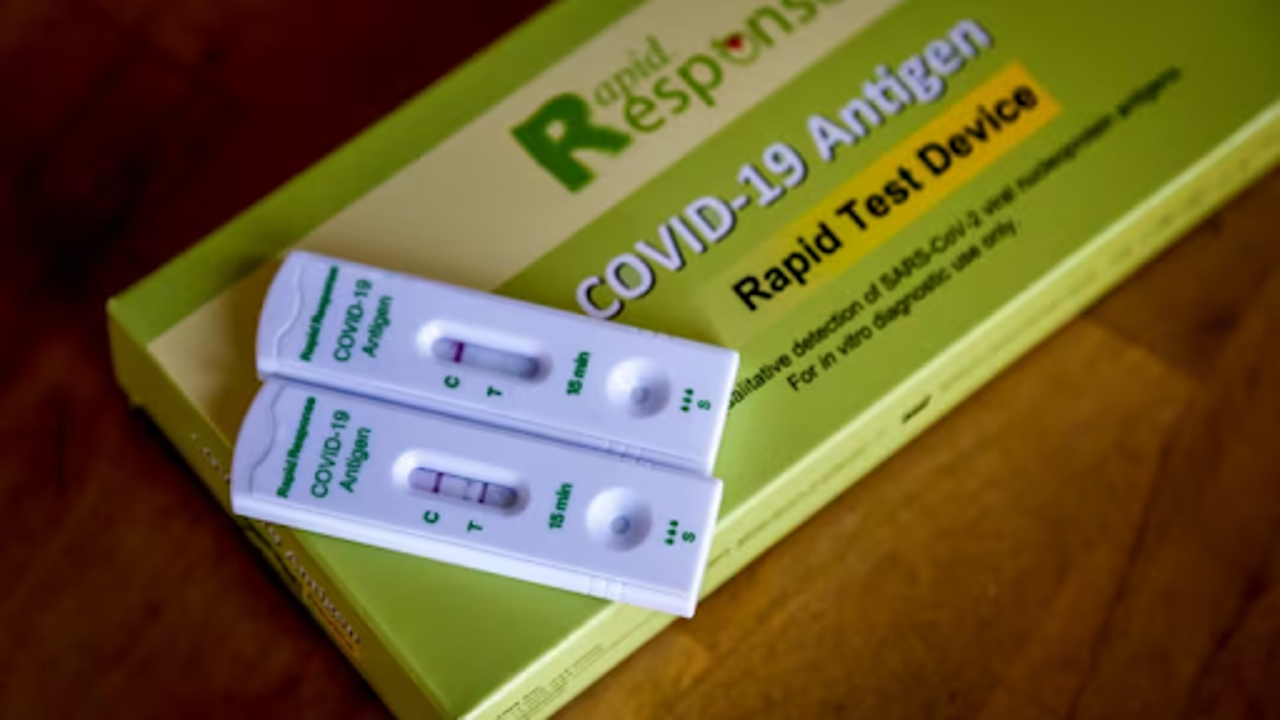
COVID rapid tests used to be widely available, and often free. But some pharmacists say that's changed. (Jeff McIntosh/The Canadian Press)
As temperatures drop and flu season picks up, experts are urging more COVID-19 testing. Montreal pharmacist Aleck Brodeur recently received a shipment of rapid tests, which are selling quickly. "They're gone almost immediately. We have to order more every day, but they keep running out," Brodeur said. He expects his latest batch of 13 kits to be sold by day's end. From September 15 to 21, Quebec recorded 3,882 new lab-confirmed COVID-19 cases.
Unlike last year, Brodeur no longer has free tests to distribute, as the federal government halted its free COVID-19 rapid test program in May. Health Canada confirmed to CBC News that it is no longer purchasing rapid tests on a large scale and has no plans to replenish its inventory. As a result, pharmacies now buy and sell the tests, which are sometimes in short supply.
Toronto-area pharmacist Kyro Maseh explained that pharmacists must search for available tests and ensure they’re approved by Health Canada. Artron Laboratories Inc., a test kit manufacturer, has ramped up production in preparation for the winter season.
Where can people find COVID tests? It might take visits to several pharmacies to locate them, either for free or for purchase. In Quebec and Ontario, free tests are no longer available in most pharmacies, but Alberta is still distributing them at participating locations until supplies run out. In Quebec, free tests are available at certain clinics and service centers. PCR tests are also available in some provinces, though results take at least 24 hours.
For those holding onto expired tests, experts say they may still work for a few months past the expiration date. However, they caution that expired tests might return false negatives. If you test negative with an expired kit but still have symptoms, you could still have COVID-19. "If it's positive, you're definitely positive. If it's negative and you have symptoms, that's when you should be concerned," said Dr. Dawn Bowdish, an immunology professor at McMaster University.
Should we still be testing for COVID-19? For young and healthy individuals, whether it's COVID-19 or a cold, the advice remains the same: stay home. However, early detection is crucial for those at higher risk. "Older adults and the immunocompromised need antiviral treatment within one to two days of illness," Bowdish noted, emphasizing the importance of timely diagnosis.
COVID-19 levels appear steady across Canada, but Dr. Donald Vinh, an infectious disease specialist at McGill University Health Centre, believes these figures are underestimations. He supports widespread testing, especially for vulnerable groups, as COVID-19 still poses serious risks. The U.S. has reintroduced a program offering households free test kits by mail, and Bowdish believes Canada should consider a similar approach to protect at-risk populations.















